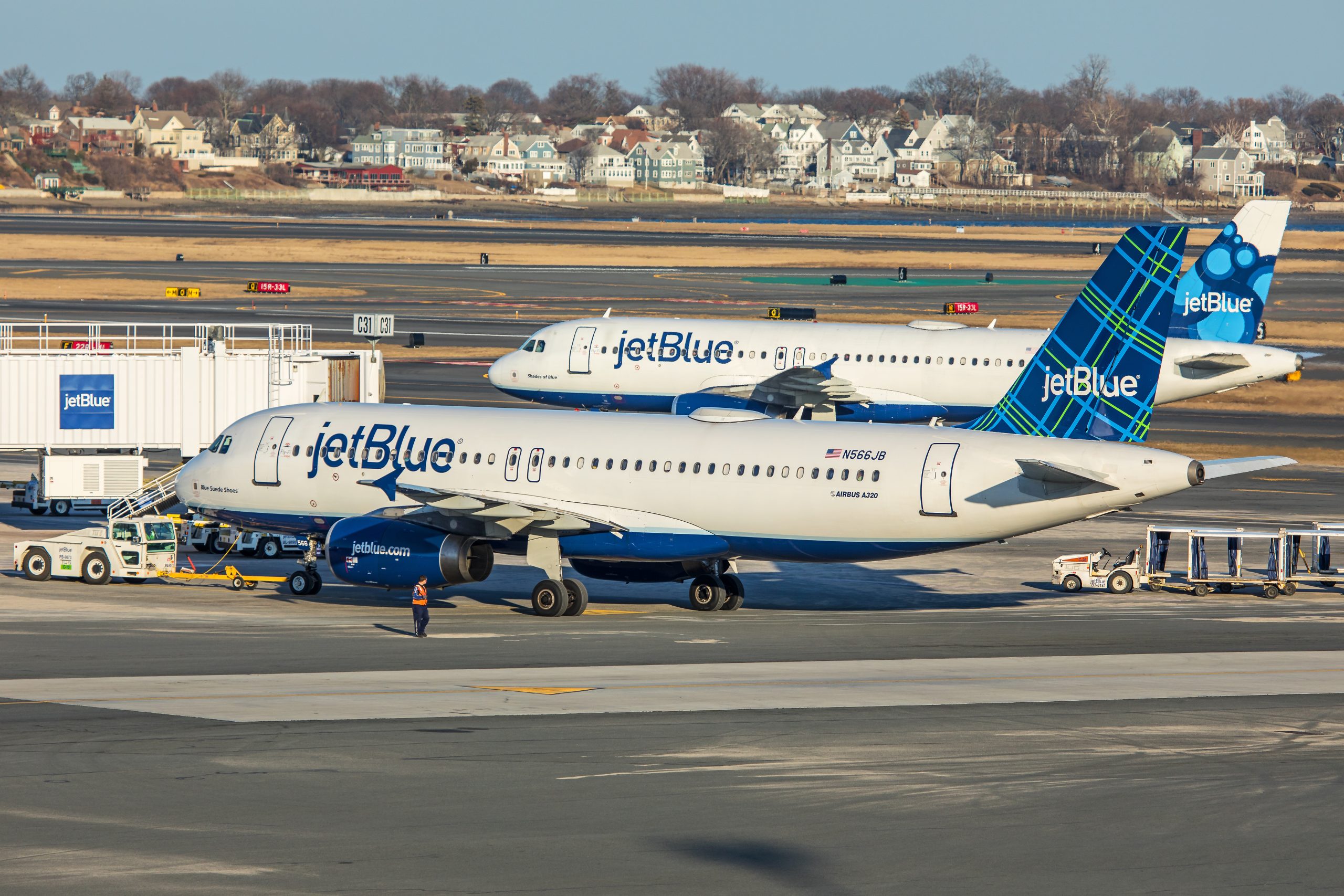
JetBlue Reveals Diminished First Quarter Earnings
On Tuesday, JetBlue announced that it has adjusted its annual revenue forecast. The carrier announced that its revenue will be…

A China Eastern 777-300ER in Los Angeles (Photo: AirlineGeeks | William Derrickson)
This Wednesday, after the Chinese government effectively prevented Delta, United and American from resuming service to China, the U.S government stated that Chinese airlines will not be allowed to fly into or out of the U.S. starting on June 16. This order applies to Air China, China Eastern Airlines, China Southern Airlines, Hainan Airlines, Sichuan Airlines and Xiamen Airlines.
It is important to remind that the relations between the countries have deteriorated sharply in recent weeks as officials scuffled over the origin of the pandemic which has wrecked the U.S. economy and Chinese move to tighten its authority over Hong Kong. This aviation dispute threatens to further chill economic relations and disrupt business ties between the United States and China.
At the start of the SARS-CoV-2 pandemic, American Airlines, Delta Air Lines, and United Airlines suspended their routes to China due to the pandemic concerns. Despite this, Chinese carriers have largely continued to fly to the U.S. throughout the pandemic.
Chinese aviation regulator announced on March 26 that they would limit foreign carriers to one flight per week based on schedules that were in place earlier that month. The Chinese restrictions became a problem only in recent weeks, as Delta and United sought to resume flights to China in early June. Both carriers appealed to the Civil Aviation Authority of China, but did not receive a response, according to one report. The Civil Aviation Administration of China has defended its policy to restrict flights as an effort to contain the risk of importing new SARS-CoV-2 infections.
Back on May 22, Reuters reported that the U.S. government “accused the Chinese government of making it impossible for U.S. airlines to resume service to China,” even as they have continued to operate flights to the U.S. throughout the whole pandemic.
On Wednesday, The Department of Transportation (DOT) order said “Chinese aviation authorities have failed to permit US air carriers to “operate the routes they previously flew.“ The DOT will continue to engage our Chinese counterparts so both U.S. and Chinese carriers can fully exercise their bilateral rights”, the Department of Transportation said in a statement. “In the meantime, we will allow Chinese carriers to operate the same number of scheduled passenger flights as the Chinese government allows ours.”
The dispute is also a departure from the type of bilateral agreements that the U.S. government has pursued for decades that aim to make it easier for airlines to expand to international airports without onerous government approvals. The U.S. does not have a so-called Open Skies agreement with China.
In a statement made by the Ministry of Education in China, there is an estimated 410 thousand Chinese students in U.S. universities that are expecting to return to China as far as possible. Applications by Chinese carriers to run charter repatriation flights “may not have accurately reflected the true nature of the services involved,” the Department of Transportation said, noting that it will now examine such applications with “the highest degree of scrutiny.”
Chinese carriers have faced allegations that they applied to run numerous “repatriation” charter flights and ended up charging exorbitant fares and disadvantaging U.S. carriers in the process.
According to aviation analytics firm OAG, the number of flights into China dropped from 1,340 in January to 69 in April. Before Wednesday’s announcement, the number of scheduled flights from the U.S. to China for June 2020 was about 79 flights, compared to 1,524 for June 2019. It is important to mention, that the order made by the U.S. transportation department does not impact cargo operations between the two countries.
The three things Juan loves most about aviation are aircraft, airports, and traveling thousands of miles in just a few hours. What he enjoys the most about aviation is that it is easier and cheaper to travel around the world and this gives you the opportunity to visit places you thought were too far away. He has traveled to different destinations in North, Central, South America and Asia. Born, raised and still living in Perú, Juan is a lawyer, soccer lover, foodie, passionate traveler, dog lover, millennial and curious by nature.
Receive a daily dose of the airline industry's top stories along with market insights right in your inbox.

On Tuesday, JetBlue announced that it has adjusted its annual revenue forecast. The carrier announced that its revenue will be…

Royal Air Maroc and Safran have deepened their collaboration in aircraft engine maintenance. In celebration of its 25th anniversary, Safran…

The importance of the North American market to Fiji Airways has been further highlighted with the announcement of an interline…



